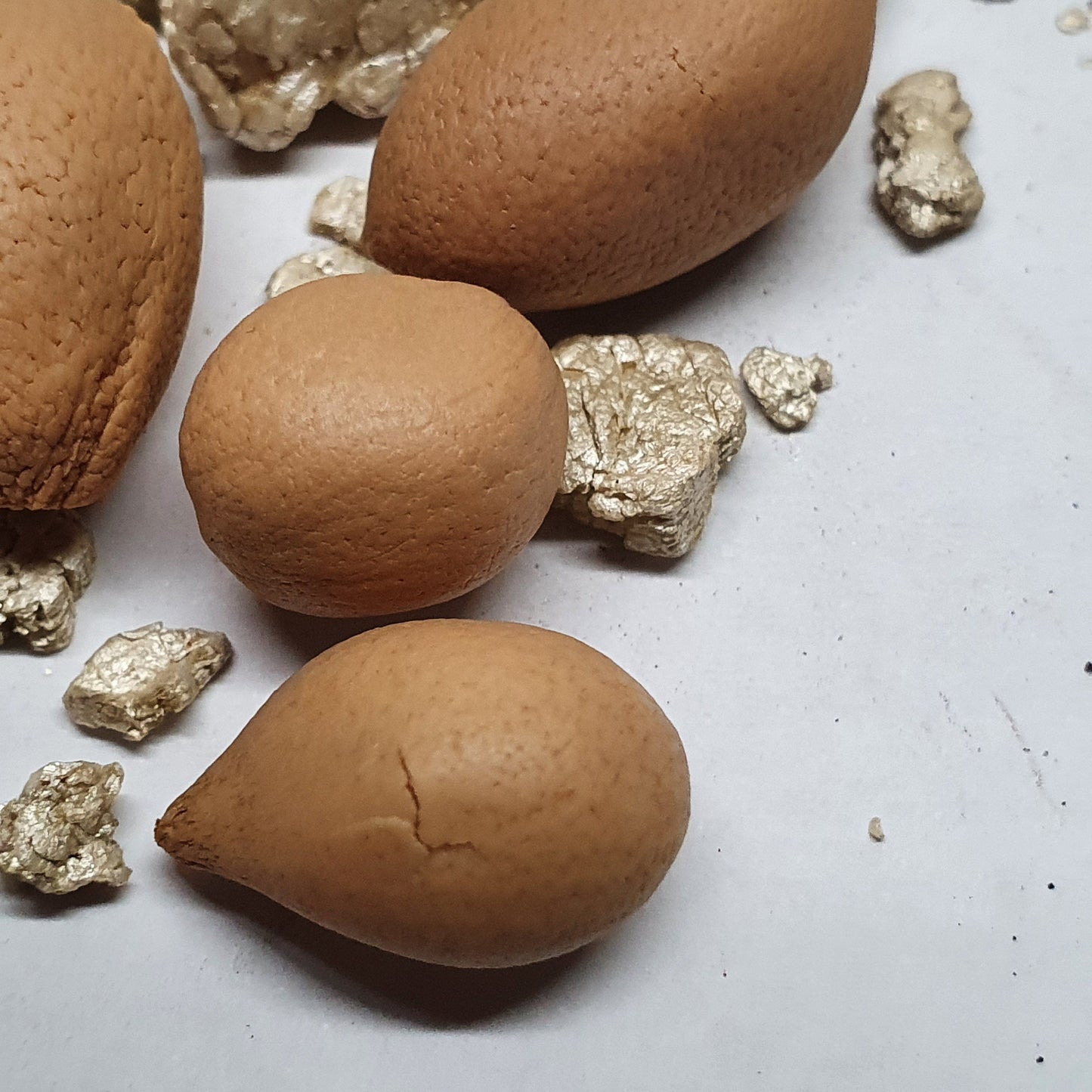Viriar
Rhapidophyllum hystrix – Needle Palm (Seeds) | VIRIAR
Rhapidophyllum hystrix – Needle Palm (Seeds) | VIRIAR
No se pudo cargar la disponibilidad de retiro
Rhapidophyllum hystrix
Needle Palm
Hardy, cold-tolerant palm perfect for temperate and cooler climates
About Rhapidophyllum hystrix
Rhapidophyllum hystrix, commonly known as the Needle Palm, is a hardy, slow-growing palm native to the southeastern United States. It is one of the most cold-tolerant palms, capable of withstanding temperatures as low as -20 °C (-4 °F), making it suitable for a wider range of climates than most other palms.
The Needle Palm is a small, clumping palm that typically grows to a height of 1–3 meters (3–10 feet) with a spread of up to 3 meters (10 feet). It is characterized by its fan-shaped leaves, which are dark green and deeply divided into narrow, pointed segments. The trunk is usually hidden by a dense mass of fibrous material and sharp needle-like spines, which give the plant its common name.
Rhapidophyllum hystrix is an excellent choice for gardeners looking to add a hardy, low-maintenance palm to their landscape. Its compact size, unique appearance, and remarkable cold tolerance make it a valuable addition to a variety of garden settings.
Seed Germination Guide
Seed Preparation
Fresh seeds of Rhapidophyllum hystrix have the best chance of germination. Soak the seeds in warm water for 24–48 hours to help soften the seed coat. Scarifying the seeds lightly can also improve germination rates significantly.
Sowing Medium
Sow the seeds in a well-draining seed-starting mix. A mixture of peat, perlite, or sand works well. Ensure proper drainage to prevent seed rot during germination.
Planting Depth
Plant the seeds about 2–3 cm (0.8–1.2 inches) deep and cover lightly with soil. Keep the seeds labeled for accurate record-keeping during germination.
Temperature and Moisture
Place the seed tray in a warm environment with temperatures around 25–30 °C (77–86 °F). Keep the soil consistently moist, but not waterlogged. Provide good air circulation to prevent mold.
Light
Provide bright, indirect light during germination. Avoid strong direct sunlight which can dry out seeds or cause overheating of the soil.
Germination Period
Germination may take several months, so patience is required. Maintain consistent warm temperatures and moisture levels for the best success rates.
Care for Seedlings
Once seedlings emerge, provide them with bright, indirect light. As they grow, gradually acclimate them to more direct sunlight. Transplant seedlings into larger pots or directly into the garden when they are large enough to handle.
Plant Care Guide
Light
Rhapidophyllum hystrix thrives in partial shade to full sun. While it can tolerate deep shade, it will grow more vigorously in bright, indirect light or dappled sunlight.
Soil
The Needle Palm prefers well-draining, fertile soil but is adaptable to a wide range of soil types, including sandy or clay soils. It performs best in slightly acidic to neutral pH.
Watering
Rhapidophyllum hystrix enjoys regular watering, especially during the growing season, but is also drought-tolerant once established. Ensure the soil remains moist but not waterlogged.
Fertilization
Fertilize with a balanced, slow-release fertilizer in the spring and summer. Feeding once or twice during the growing season should suffice for healthy growth.
Temperature and Hardiness
This palm is extremely cold-hardy, tolerating temperatures as low as -20 °C (-4 °F). It is well-suited to USDA zones 6b–11, making it a versatile choice for gardeners in cooler climates.
Pruning and Maintenance
This palm requires minimal maintenance. Remove any dead or damaged fronds to keep the plant tidy and healthy. Be cautious of the sharp spines when handling or pruning.
Planting and Container Growing
When planting outdoors, choose a location with well-draining soil and some protection from the hottest afternoon sun in warmer climates. For container planting, use a large pot with drainage holes and a rich potting mix.
Quick Reference Summary
Premier Provider of Exceptional Exotic and Rare Seeds Worldwide
Specializing in authentic, carefully curated germplasm selected with meticulous precision and unwavering commitment to quality excellence.
Shipping & Returns
Shipping & Returns
Share



















